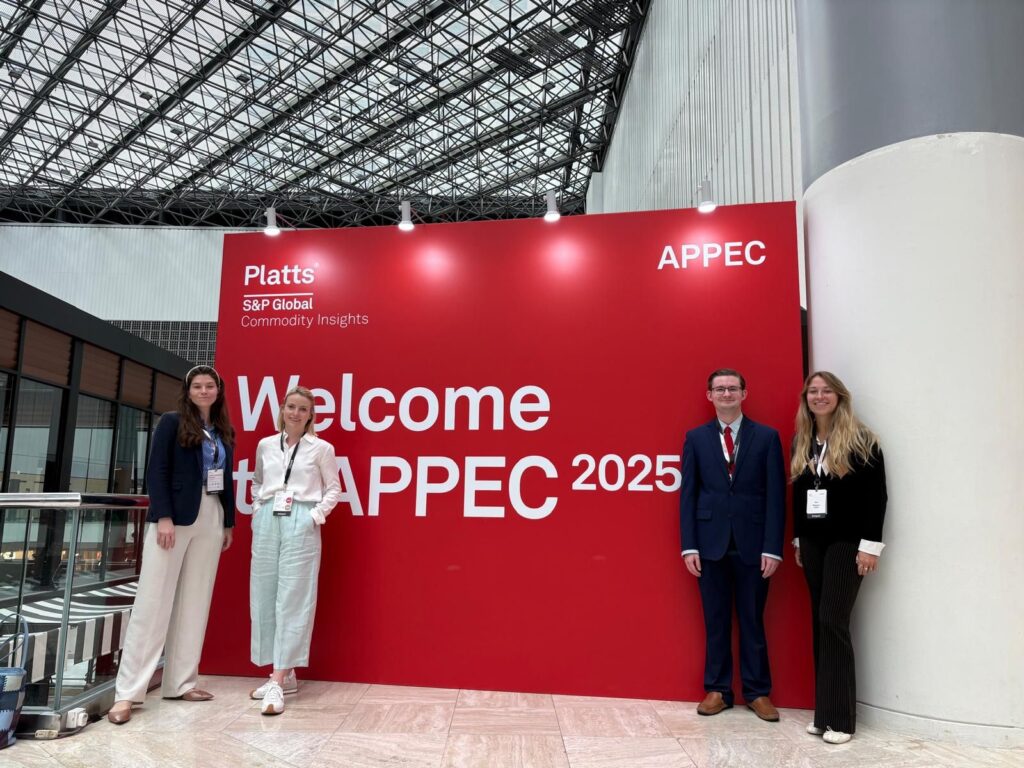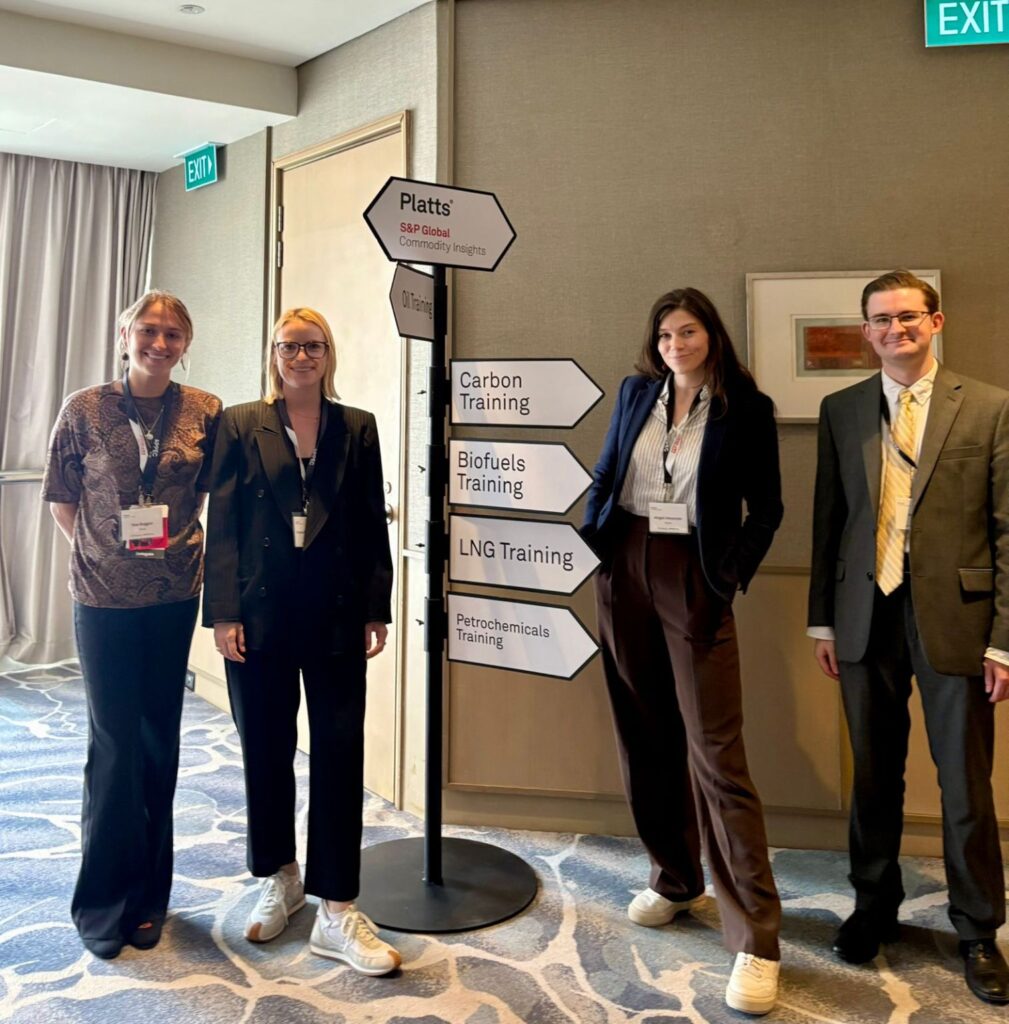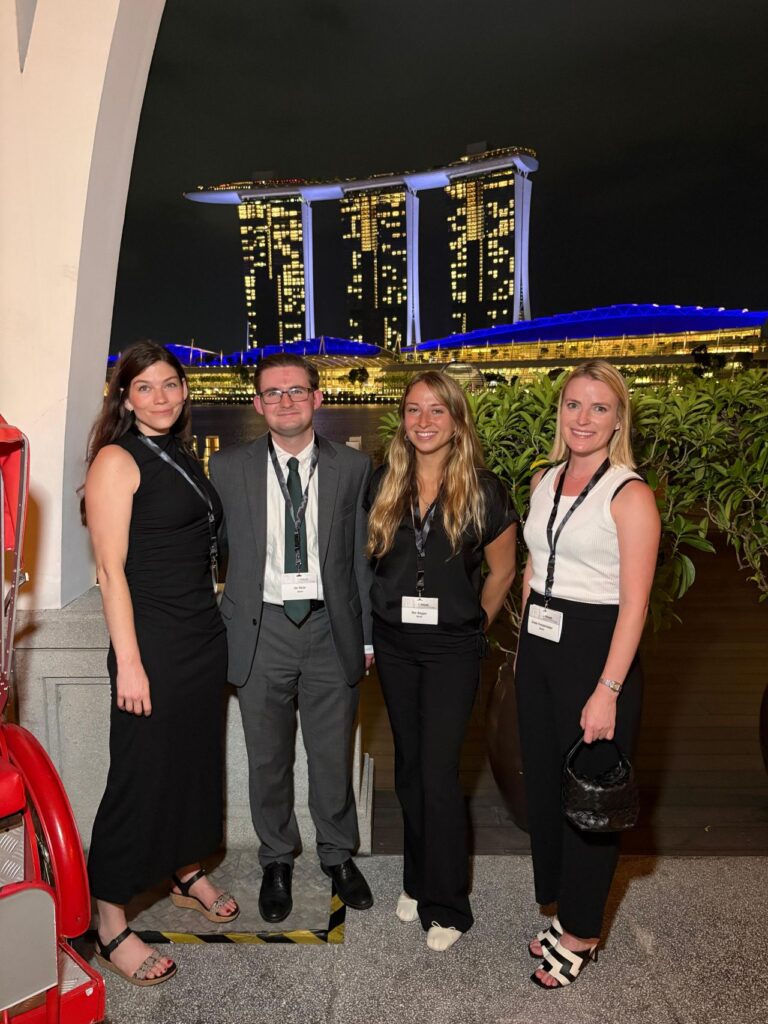3 takeaways from APPEC 2025
By Noe Boggan, Qorvis Dubai
The Qorvis Dubai team returned to Singapore for the annual Asia Pacific Petroleum Conference (APPEC), one of the energy world’s most important gatherings, organized by S&P Global Commodity Insights.
APPEC is a chance to gather insights on the forces reshaping global energy, and how Qorvis can help clients stay ahead of them. We spent the week connecting with clients, journalists, and partners, gathering intel on shifting demand patterns, trade routes, and geopolitical pressure points.
This year, hot topics included the energy transition, oil pricing and demand, the impact of EVs, infrastructure development in Africa and the Americas, and of course, what we can expect in terms of sanctions and tariffs. Here are three takeaways that stood out to us.
1. Geopolitical uncertainty is shaping our energy market, and sanctions and tariffs were discussed in nearly every panel. All week long, experts examined critical questions: What will Trump decide next? How will the UK and the EU respond? Is the Russia-Ukraine conflict coming to an end? Energy traders must stay on their feet to constantly adapt to geopolitical volatility. For companies navigating the maze, this means adapting communications, trade strategies, and government engagement in real time.
2. The Dangote refinery in Nigeria is the world’s largest single-train refinery, and since the refinery began production in early 2024, we’ve seen a resurgence in African energy. The refinery must take time to stabilize and reach its full export capacity, but it has many expansion plans that will boost Africa’s position in the global energy market. Clients operating in or trading with West Africa need to monitor how these shifts open new opportunities or create supply chain risk.
3. EVs have established a firm presence in the global market. China, for instance, funneled significant credit into the development of electric vehicles, making it dominant in the highly competitive EV industry. Today, half of new car sales in China are electric. At the same time, the U.S. currently has a 100% tariff on Chinese EVs. What this means for the global sector—particularly for countries and companies caught between supply, policy, and demand—remains to be seen. But one thing is clear: companies will need to monitor not just where the market is headed, but how quickly geopolitical conditions may shift it.
Global demand for energy—oil, natural gas, coal, nuclear, hydro, modern biomass, and renewable sources—is greater than ever. The future of oil is not in more supply, but in smarter operations: improved fuel economy, new propulsion systems, next-generation fuels, and carbon offsetting. LNG, in particular, continues to prove versatile and complementary to renewables across power, city gas, transportation, and industrial applications.
And yes, there was time to explore Singapore with our colleagues, too. We experienced the city’s famous street food at the Hawker Centres and sipped the original Singapore Sling at Raffles Hotel. More than just a fun detour, these shared moments deepen our relationships in the industry and build trust—something no panel or platform can replace.










